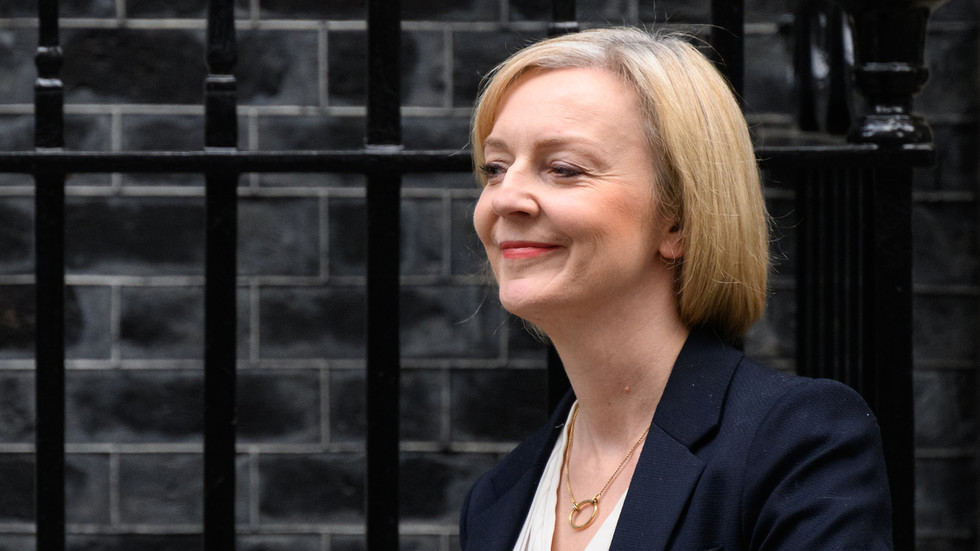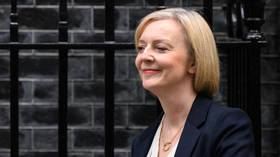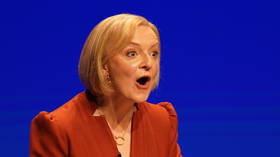
The British PM should get a Nobel Prize for the fastest-ever destruction of national finances, Dmitry Medvedev has joked

FILE PHOTO. Liz Truss makes her way to the House of Commons on October 19, 2022. © Leon Neal / Getty Images
Former Russian president Dmitry Medvedev has joined the chorus of critics of British Prime Minister Liz Truss and the effect that her proposed policies have already had on the state of the country’s economy.
The “frantic” prime minister “deserves the Nobel Prize in economics for the fastest-ever ruining of national finances,” the Russian official joked on social media on Thursday. The remark came as part of a commentary on what Medvedev sees as the poor qualifications of modern European leaders for governance.
The Truss government came under fire after a proposed radical neoliberal policy change penned by former chancellor of the exchequer Kwasi Kwarteng sent the British financial market into disarray, causing a sharp devaluation of the national currency.
Kwarteng was fired and replaced last Friday by Jeremy Hunt, who made a U-turn on the idea of reducing taxes to kickstart the economy, while also ramping up government spending to alleviate the impact of the global energy crisis.

Read more
As her approval ratings plunged, some Tory MPs urged Truss to resign. She refused to do so, telling the BBC this week that she would “stick around.”
“We simply cannot afford to spend our time talking about the Conservative Party, rather than what we need to deliver,” she explained.
The disarray in the Truss cabinet was escalated further by the resignation of Home Secretary Suella Braverman on Wednesday, and a reported clash between the prime minister and Chief Whip Wendy Morton and her deputy Craig Whittaker. A senior Conservative MP was quoted by The Telegraph musing that Truss had “hours, not days” left.
If forced to leave office, she would become the shortest-serving prime minister in British history, breaking the record of George Canning. His sole term in office in 1827 lasted just 119 days and was cut short by his death. Truss took the helm of the British government on September 6.




